The Secretly Toxic Bathroom Storage Item Toxicologists Say You Should Replace This Season
Easy, right-now swaps to safeguard your health and home

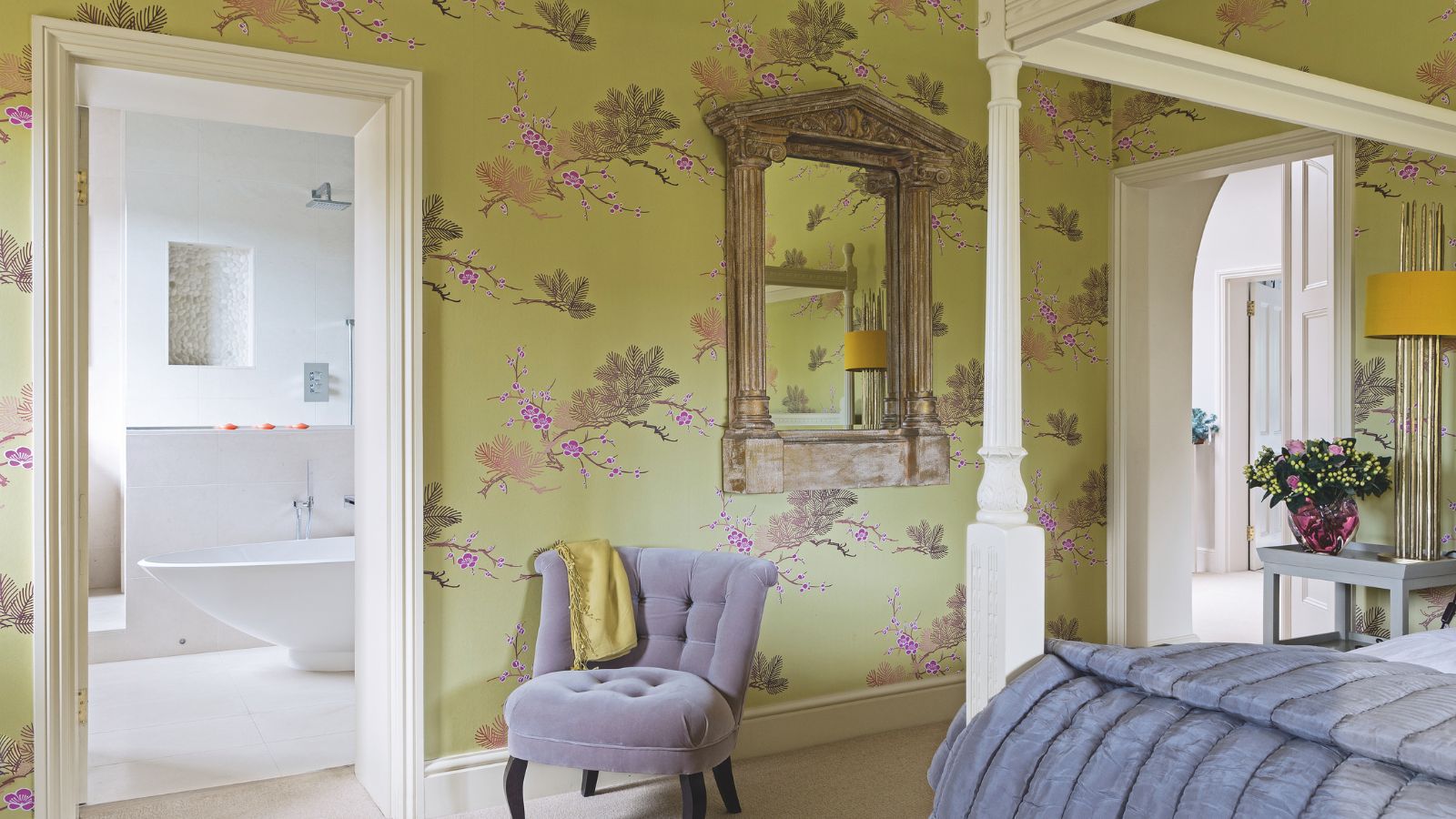
Design expertise in your inbox – from inspiring decorating ideas and beautiful celebrity homes to practical gardening advice and shopping round-ups.
You are now subscribed
Your newsletter sign-up was successful
Want to add more newsletters?

Twice a week
Homes&Gardens
The ultimate interior design resource from the world's leading experts - discover inspiring decorating ideas, color scheming know-how, garden inspiration and shopping expertise.

Once a week
In The Loop from Next In Design
Members of the Next in Design Circle will receive In the Loop, our weekly email filled with trade news, names to know and spotlight moments. Together we’re building a brighter design future.

Twice a week
Cucina
Whether you’re passionate about hosting exquisite dinners, experimenting with culinary trends, or perfecting your kitchen's design with timeless elegance and innovative functionality, this newsletter is here to inspire
When we think about toxins at home, most of us picture nonstick cookware or black plastic utensils in the kitchen. But experts say bathrooms can be just as problematic – especially right now, when we’re spending more time indoors and doing seasonal clean-outs.
According to toxicologists, some of the everyday bathroom organizing items many of us rely on could quietly expose us to harmful chemicals without us realizing it. From organizers to bins and caddies, what you store your essentials in matters just as much as the products themselves.
Here, leading toxicologists break down which common bathroom storage items are worth replacing now to reduce exposure, plus safer swaps you can make for a healthier home
Toxicologists Say Plastic Storage Is the Most Toxic Part of a Bathroom
It might be surprising, but the worst toxicity offenders in your bathroom are usually storage items. While they might help keep things tidy, using ones made from toxic chemicals should be at the top of your bathroom decluttering checklists to make a home less toxic.
Bruce Jarnot, global materials compliance expert, toxicologist, and product compliance advisor at Assent says, ‘In the bathroom, personal care, storage, and cleaning products, including dental floss, often contain PFAS.'
Polyfluoroalkyl substances (PFASs) are a group of long-lasting synthetic chemicals often used in plastics to make them nonstick, stain-resistant, or water-repellent. They can accumulate in the body and environment over time.
As we head into a new season and spend more time refreshing our routines and homes, it’s worth noting that studies show PFAS can disrupt hormones, contributing to low mood, low energy, and broader health issues over time. Reducing your exposure now –especially in the products you use on your body – can be a simple but meaningful step toward feeling better in the months ahead.
Design expertise in your inbox – from inspiring decorating ideas and beautiful celebrity homes to practical gardening advice and shopping round-ups.
How to Easily Spot the Swaps to Make
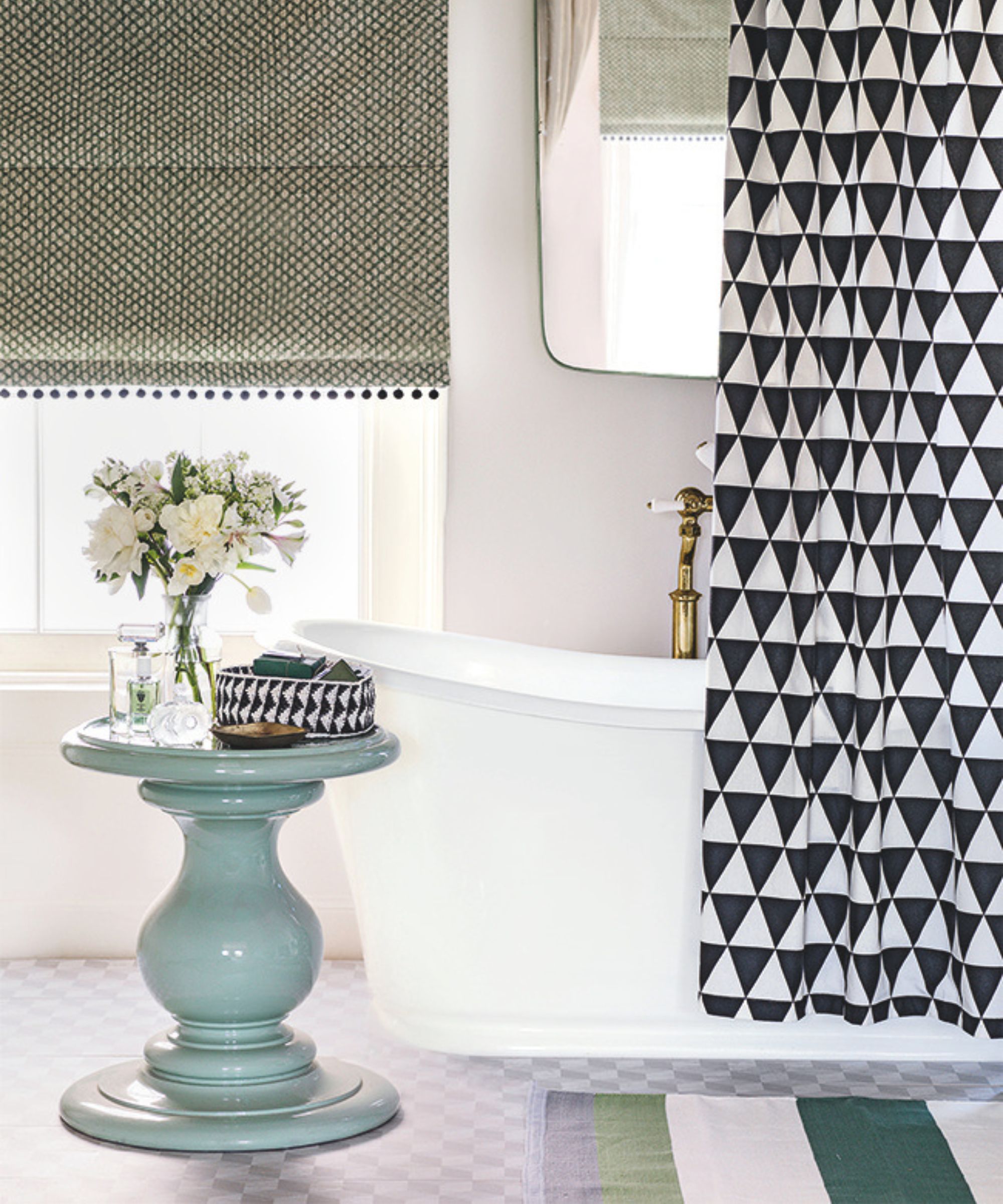
Spotting toxic materials when shopping will help you avoid bringing unecessary toxins into your bathroom.
To check if a bathroom storage item contains PFAs or BPA, you can try the following steps:
- Check the labeling or packaging – Look for terms like ‘BPA-free’ or ‘PFOA-free’ (a common type of PFAs) on the product itself, its box, or the manufacturer’s website. Many brands now label items if they are free of these chemicals.
- Look at the recycling code – Plastic items often have a small triangle with a number (1–7). Codes 3 (PVC), 6 (PS), and 7 (other/PC) may contain BPA or related chemicals, while 1 (PET), 2 (HDPE), 4 (LDPE), and 5 (PP) are generally considered safer.
- Research the brand and product online – Manufacturer websites or independent product reviews sometimes list whether PFAs or BPA are present.
- Contact the manufacturer directly – If the packaging or website doesn’t specify, email or call the company to ask about PFAs or BPA in that specific item.
- Use caution with unknown plastics – If you’re unsure, it’s safest to replace the item with ones labeled BPA-free, PFAs-free, or made from glass, stainless steel, or FSC-certified paper rope alternatives.
Luckily, it is fairly easy to switch over to non-toxic home essentials to make your routine less damaging to your health, but don't forget about the toxic items in your bedroom and elsewhere, too.
Bruce Jarnot, toxicologist, adds, 'When shopping, look for items made from natural materials like cotton, bamboo, wool, or glass, and labels that state "PFAS-free" or "PFC-free”. If the ingredient list is long, look for chemicals that include “fluoro” as that signals the presence of PFAS.’
When organizing your makeup and skincare, store them in opaque storage off the counters. This protects them from humidity and sunlight to prevent early deterioration, keeping them in top condition for longer.
Beyond storage, Amberly Johnson, certified toxicologist and director at Utah Poison Control Center at the University of Utah, adds, ‘Our bathrooms are filled with products that can cause toxicity, including medications, personal care items, and cleaning supplies.
'Medications can be dangerous if not taken as directed or if ingested accidentally by children exploring their surroundings. Young children might mistake personal care products or cleaners for something edible. Additionally, getting cleaning products on the skin or in the eyes or inhaling their fumes can also pose serious risks.’
Other Tips For Reducing Toxicity in Your Bathroom Storage
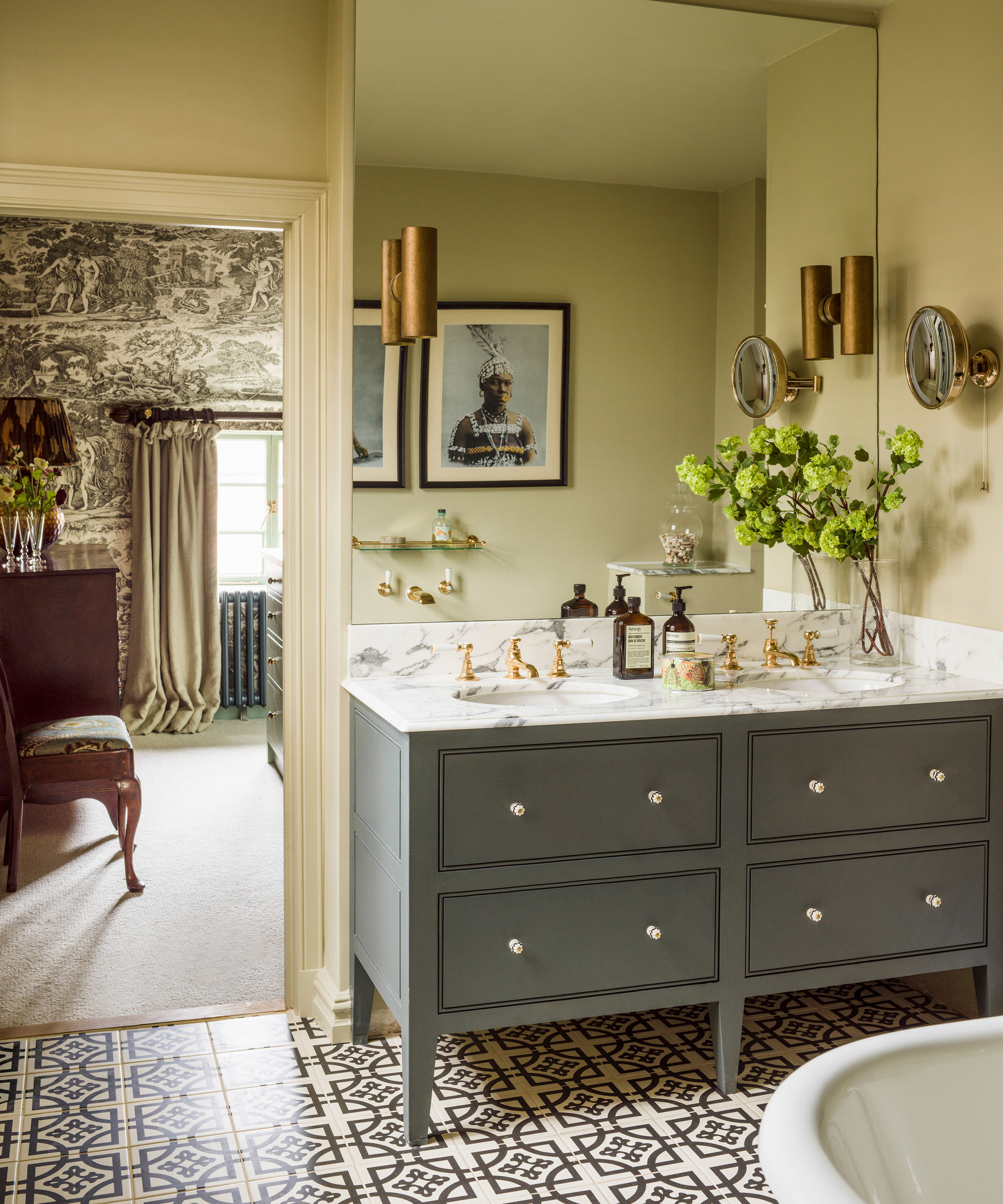
It's not just about the materials in your bathroom storage, but the position, too.
Additionally, when organizing makeup and organizing skincare, keeping products off your countertops is especially important right now, as rising humidity and longer daylight hours can speed up breakdown and reduce effectiveness.
Storing them in drawers or cabinets helps protect formulas from heat, moisture, and sunlight, preventing early deterioration and keeping products safer to use.
Luckily, it is fairly easy to switch over to non-toxic home essentials to make your bathroom storage less damaging to your health.
As we head into spring cleaning season, it’s a perfect time to revisit how we store potentially hazardous items at home. Amberly Johnson notes that organizing medicine cabinets properly helps keep medications safe and in good condition, preventing early deterioration.
She advises, 'Prevention is key to avoiding poison exposure in our homes. Store medicines out of reach or in places where they are not visible, such as behind closed cabinet doors or inside a locked box [available at Amazon]. Always keep medicines in their original, child-resistant packaging to make them harder to access and easy to identify.'
With more time spent at home during the winter months or during seasonal clean-outs, it’s also important to rethink where we keep everyday cleaning products. Amberly adds, 'Don’t forget to organize cleaning supplies the same way.
'Place cleaners, including dishwasher detergent, in high cabinets that children cannot reach, and store them away from food to prevent cross-contamination. Remember, your local poison control center is available 24/7 at 1-800-222-1222 if a poisoning occurs or if you have any questions.'
Taking a few minutes now to reorganize medicine and cleaning supplies can prevent accidents, protect your family, and make your home feel safer and more orderly for the season ahead.
What to Shop
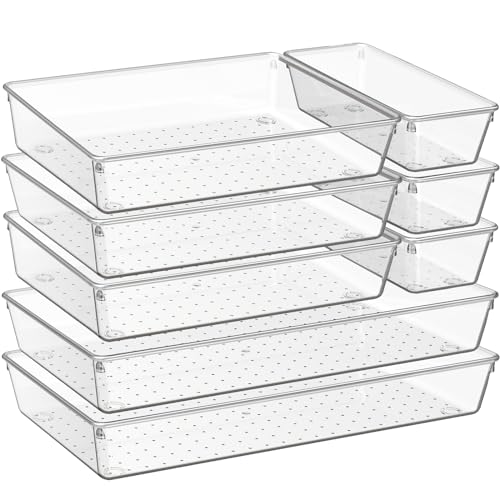
Go BPA free when picking plastic or acrylic storage items, as pictured here. These are free from the toxins that can leach into your products or items you use on your skin.
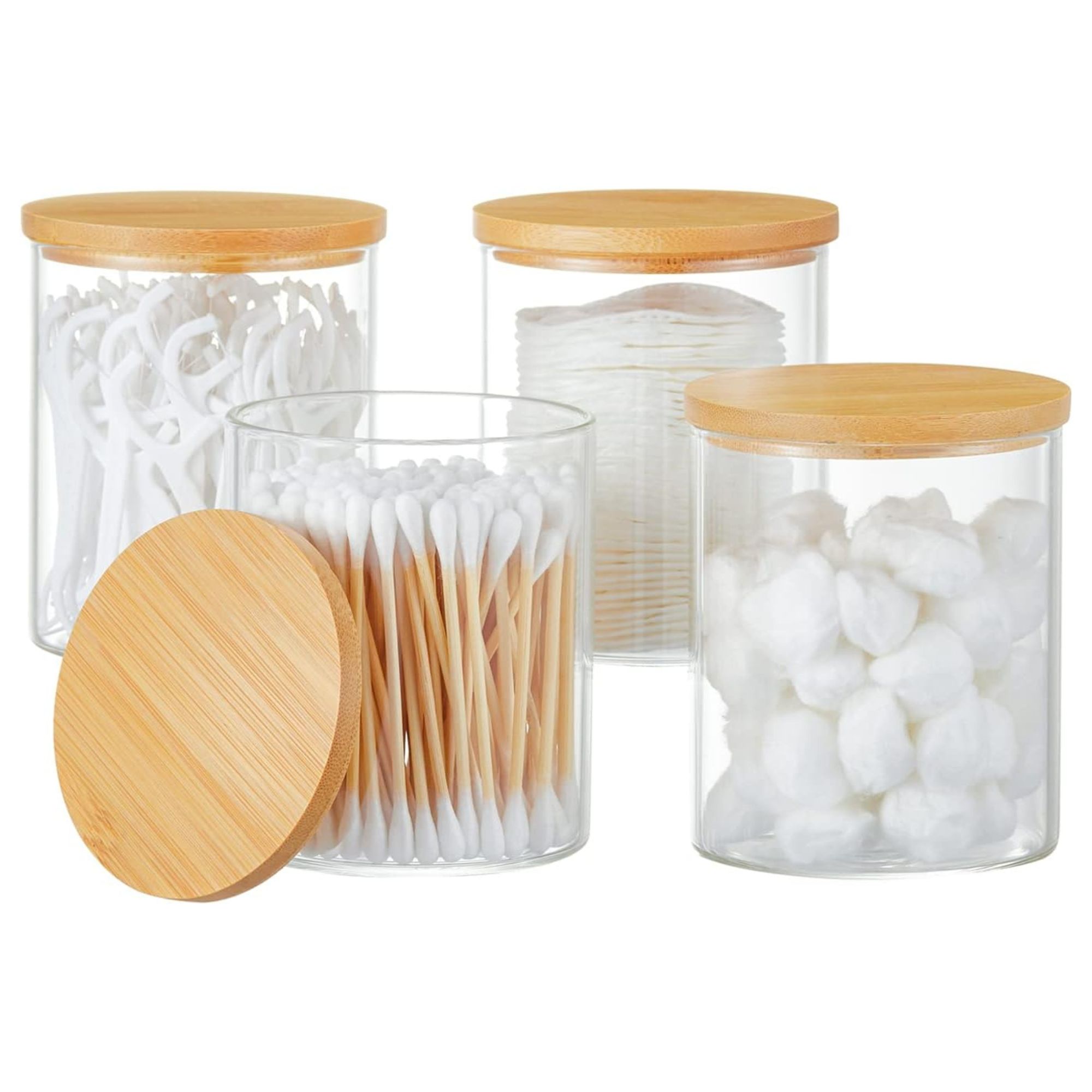
Glass is typically PFA-free, and these airtight jars are perfect for holding personal care items you use daily without leaching chemicals into them, or your bathroom's humidity getting to them.
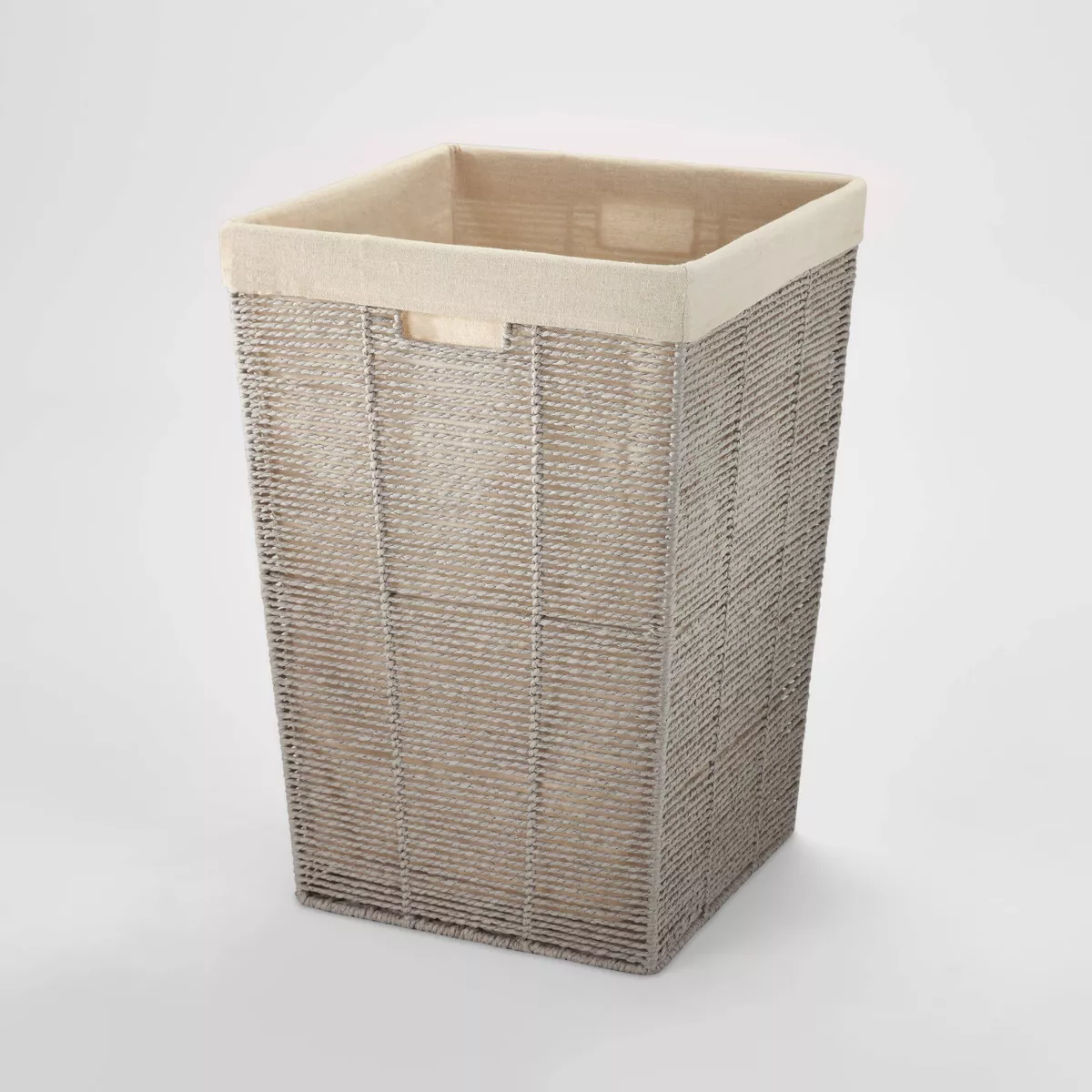
This is made from FSC-certified paper rope; an eco-friendly alternative to synthetic ropes, giving you a biodegradable, renewable option without contributing to deforestation.
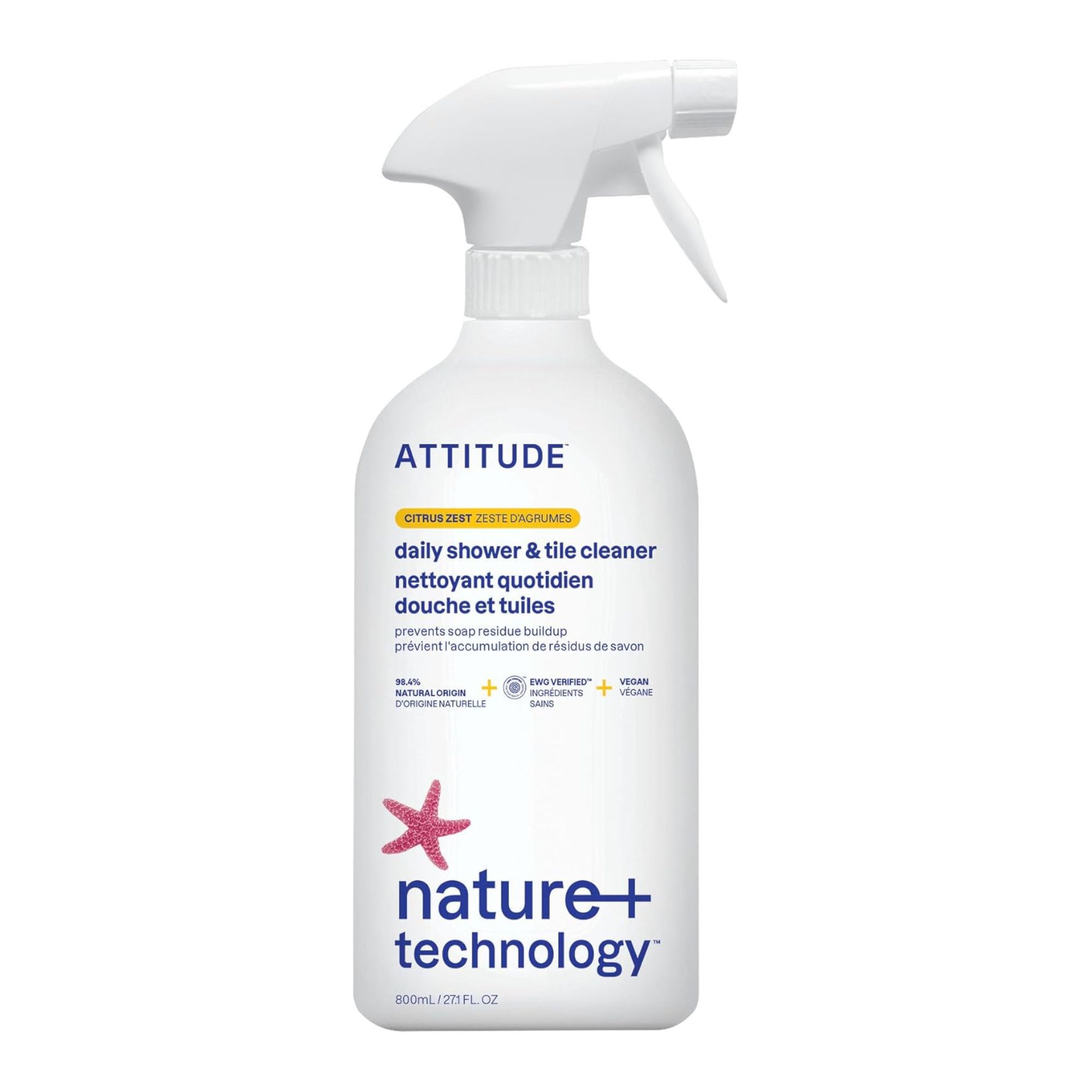
Keep your bathroom sanitized without harsh bleach by swapping to Attitude's EWG-approved bathroom spray. This means it is certified free from dangerous chemicals and toxins that could make you sick.
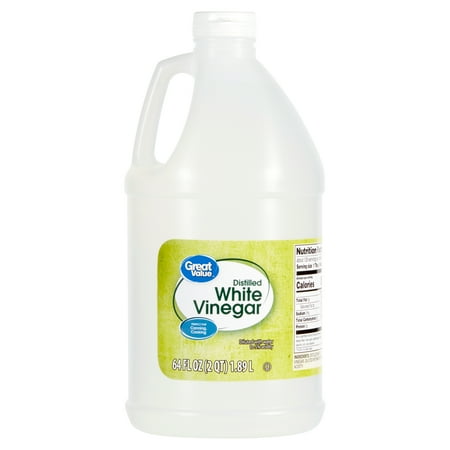
Vinegar is a go-to 'safe' cleaner, helping to kill bacteria and remove odors without the need for harsh chemicals. A 2020 medical study demonstrated that white vinegar) has a disinfecting effect against a variety of microorganisms, including dangerous pathogens such as E. coli.
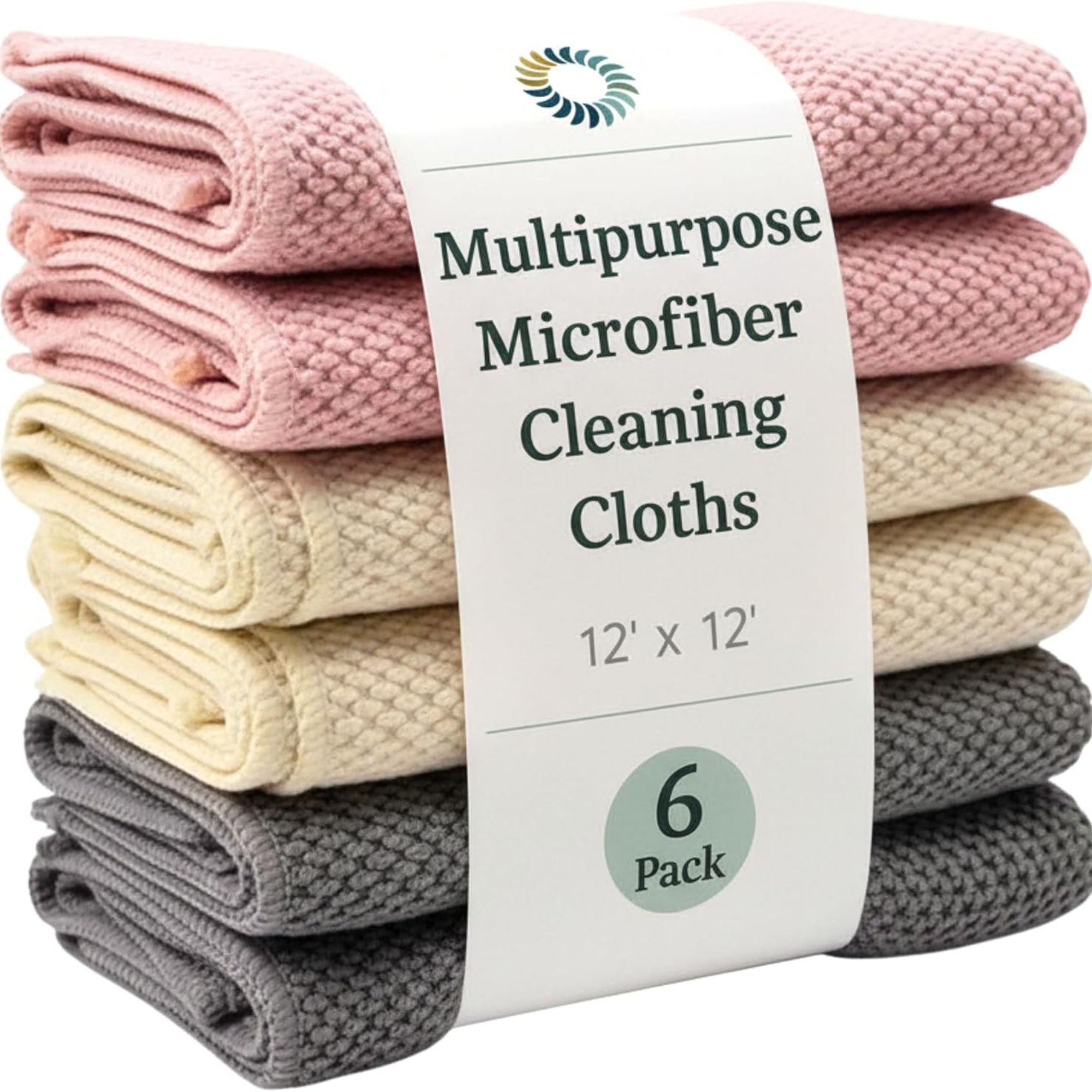
These 12 x 12 inch, lint-free and highly absorbent clothes are made from non toxic materials and are great for cleaning glass, counters and other surfaces commonly found in the bathroom.
FAQs
Are shower curtains toxic?
Shower curtains are relatively unassuming bathroom items, but they are potentially one of the most toxic.
Dr. Paul Savage, toxin expert and chief medical officer at MDLifespan explains, ‘Most of the ones on the market are made from PVC, which can release volatile organic compounds (or VOCs) into the air.
'These VOCs aren’t great, and they’ve been linked to respiratory issues and other health concerns. Swapping to a fabric or PEVA shower curtain is a simple change that can make a big difference.’
How you clean a bathroom can have a big impact on both your health and your home. Right now, as many of us focus on seasonal deep cleaning, choosing cleaning products that are gentler can make a real difference.
Opt for less harsh cleaners, like cleaning with vinegar, or explore plant-based alternatives to create a bathroom that feels healthier, safer, and more relaxing – turning your space into a true wellness retreat rather than a source of hidden toxins.

Chiana is Homes & Gardens’ kitchen appliances editor. With a lifelong passion for cooking and baking, she grew up experimenting in the kitchen every weekend with her baking-extraordinaire Mom, and has developed a great understanding of how tools and appliances can make or break your ideal relaxing kitchen routine.